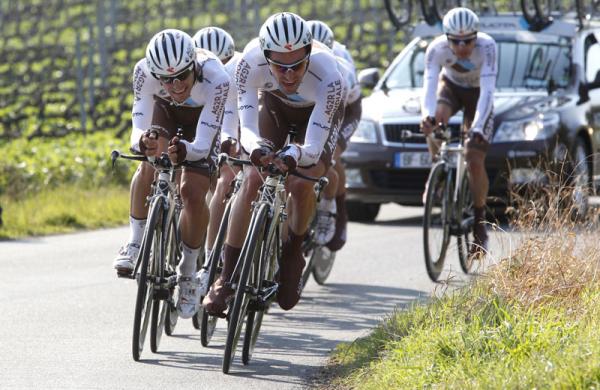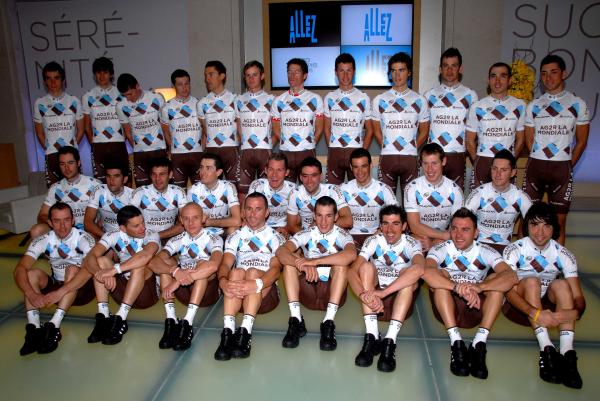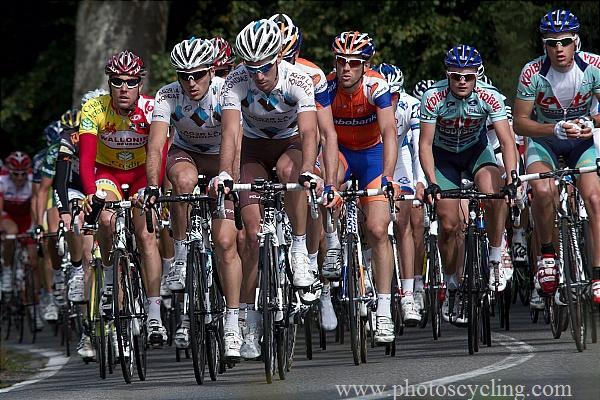How to play the cycling numbers game
Just how easy is it to build a ProTour team on a budget?



AG2R-La Mondiale is now the only UCI Pro Team yet to win this year. In 2011 the brown short brigade took five wins, crowned by John Gadret’s stage win in the Giro d’Italia. With a modest record like this it’s easy to be dismissive but this ignores the squad’s budget, it just doesn’t have the funds to match Team Sky or Omega Pharma-Quickstep.
Big teams squashing small ones is not a new story. A film last year called Moneyball showed one way for small teams to compete. Originally a best-selling book by raconteur Michael Lewis, Moneyball is about baseball and statistics. The Oakland Athletics had less money than rivals but mined data on player performance, hunting for hidden patterns to build a team capable of grinding out wins instead of a collection of superstars.
What if we could do this in cycling? Can you build a team on a modest budget with unheralded riders and make it to the top level? This is a difficult and different task. Baseball is full of stats. There are algebraic formulae to determine the slugging percentage and other data. In cycling we have nothing similar. Cycling Quotient offers an efficiency ranking, dividing kilometres raced per year with success but that’s about it. Yet both sports share a love of history and stars of the past are celebrated. Given these facts it’s easy to understand why myths, nostalgia and accepted wisdom can cloud rational thought.
Many teams have operated on thin budgets and ridden with a jersey resembling a patchwork quilt of corporate logos. But rather than how you raise money, here I want to look at how you make your money go as far as possible.
Boringly, tax is your starting point. As a team owner, wages are the biggest claim on your budget by a long way. If you’re a French team your payroll is taxed at around to 40%, in other words add up all the team’s wages and the French government slaps a hefty levy on top. It’s not unique to France but teams can shop around. For example the Farnese Vini squad might seem Italian thanks to its wine and olive oil sponsors and its Cipollini bikes but it is actually registered in London, not Lombardia. This allows the team to benefit from lower British payroll taxes. Tax dodging might raise ethical issues but for now the rules seem to allow it.
Next there’s the matter of rider contracts. Many riders are not salaried employees of a team but instead are contractors who rent out their services to a pro team. It might be a legal nicety but it means the team can shrink social security or pension contributions, a significant saving. Again this solo status is not allowed in some countries. In France for example riders have to be full-time staff of the team. Tax and contractual status might sound boring but in a sport where finding an extra one percent gain helps, saving 40% on the wage bill is massive.
Unlike baseball, cycling does not have the binary outcome of winning and losing, instead only one rider wins as hundreds “lose”. So the UCI rankings are not the same as league table. You don’t need to win a race to top the rankings, indeed crowd the top-20 of the overall classification of a race and your riders win plenty of points, even if nobody notices them. This can change how you race, a team might aim to secure, say, seventh overall in a stage race in order to bank points rather than try risky moves for a stage win that won’t bring many points. A similar route is to hunt far and wide. Ag2r and Lotto-Belisol both recruited an Iranian rider over the winter and were open about their motivations - they were hired thanks to their haul of UCI points, mostly gained from the UCI Asia Tour races. Aiming for a modest overall position or hiring Iranians doesn’t make you win more races, instead it is a response to the “sporting criteria” set by the UCI to be amongst the top-18 teams. In other words, maybe you cannot win races so at least win the points needed to stay in the top league of teams.
Based on this our prototype “Moneywheel” team would be registered offshore, use the tax savings to sign winners from Asia and South America and European riders with a proven track record of finishing around tenth place in a week-long stage race. Done right, this could get a UCI ProTour licence for the least outlay possible although dodging taxes and hiring unremarkable riders probably won’t sound like the fan’s choice. But we’re not here for popularity. The start line of the top races, including the Tour de France, awaits.
As for actually winning races, this is harder. A shoestring budget means fighting the top sprinters, climbers, stage race and classics specialists on their terms is too expensive. Probably the cheapest opportunity is to specialise in opportunist attacks and long range breakaways. A thankless task, but try it often and one day the move will work. You won’t win big but you’ll have a team in the top tier and the chance to dream of landing a big win.
To conclude, it is possible to play with the arithmetic of points and rankings to help engineer a team into the top-18. Shopping around for a country to register your team can save big money that can be spent on hiring some valuable riders. But any team on a modest budget will probably still be picking up the crumbs left by the big teams. This is probably true for Ag2r and several other squads too. But it'd be boring if every team was the same, no?
Get The Leadout Newsletter
The latest race content, interviews, features, reviews and expert buying guides, direct to your inbox!
The Inner Ring blog has rapidly emerged as one of the most well informed and informative blogs about professional cycling.
The author has preferred to keep his identity a secret but clearly has a finger on the pulse of the sport. He writes from a fan's point of view but has inside knowledge of the sport thanks to a network of contacts and a close monitoring of the cycling media.
Link: inrng.com